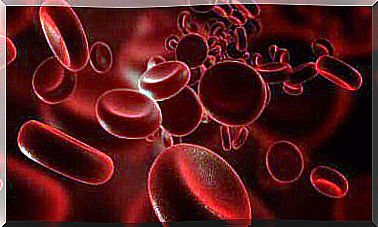How To Overcome Postpartum Depression?

Postpartum depression is a mood disorder that can affect women after childbirth. It can have a moderate to severe intensity and is the consequence of a combination of physical and emotional factors. Fortunately, there are ways to overcome postpartum depression.
Mothers who suffer from postpartum depression often experience feelings of extreme sadness, anxiety and tiredness. This emotional and physical state makes it difficult to carry out daily tasks that involve taking care of the newborn and herself.
What causes postpartum depression?
When women give birth, estrogen and progesterone levels drop rapidly. These sudden changes in hormone levels can cause mood swings. Also, many women are unable to get enough rest to fully recover from childbirth.
The constant lack of sleep and rest can lead to physical discomfort and exhaustion. Both factors can contribute to the onset of postpartum depression.
What are the symptoms of postpartum depression?

Postpartum depression occurs in almost 15% of births. Although it may start a little earlier, most often it starts after the baby is born; it usually starts between a week and a month after delivery.
The most common symptoms a woman may experience include the following:
- Sadness and crying more often than usual or for no apparent reason.
- Anxiety and irritation.
- Sleeping excessively or not being able to sleep, even when the baby sleeps.
- Lack of concentration and loss of interest in enjoyable activities.
- Eat too much or too little.
- Isolate yourself from friends and family.
- Having trouble bonding with the baby emotionally, and doubting her ability to be a good mother.
Because symptoms can vary from woman to woman, a doctor will be able to determine if they are due to postpartum depression or some other factor.
Are there any risk factors for postpartum depression?
Postpartum depression can affect any woman, regardless of age, race or financial status. However, some women may be at increased risk of postpartum depression due to the presence of the following risk factors:
- Symptoms of depression during or after a previous pregnancy.
- A history of depression or bipolar disorder at another stage in your life, as well as a family history of depression or other mental illness.
- Going through stressful situations during pregnancy or right after childbirth, such as the existence of medical complications during childbirth, such as premature birth or the baby being born with health problems.
- Lack of emotional support from your husband, partner, family or friends.
Treatment to overcome postpartum depression

To overcome postpartum depression, one can use pharmacological treatment, psychotherapy, or both. The doctor will assess which is the best solution for each case.
Among the treatments available are:
Psychotherapy
Specialist sessions can be of two types. Both types of psychotherapy have been shown to be particularly effective in treating postpartum depression:
- Cognitive Behavioral Therapy (CBT) : Helps people recognize and change their negative thoughts and behaviors.
- Interpersonal therapy (IPT) : helps people understand and live with problematic personal relationships.
antidepressant medications
Antidepressant drugs act on brain chemicals involved in mood regulation.
Additionally, these types of medications are generally considered safe to use while breastfeeding. However, the specialist must assess the risks and benefits that these medications entail for the mother and baby.
In addition to the treatments, the support of family and friends as well as his own personal attitude, are also very important to overcome postpartum depression.
Other measures
There are other measures that can help to overcome postpartum depression:
- Get enough sleep: Sleep is very important for physical and mental health. Efforts must be made to reconcile the sleep of mother and baby, so that when the child falls asleep, the mother can also rest and recover.
- Have free time: as much as possible, try to have free time to be alone, with your partner or with your friends.
Finally, it is worth mentioning that, without treatment, postpartum depression can last for months or years. In addition to affecting the mother’s health, it can interfere with her ability to relate to and care for the baby.









